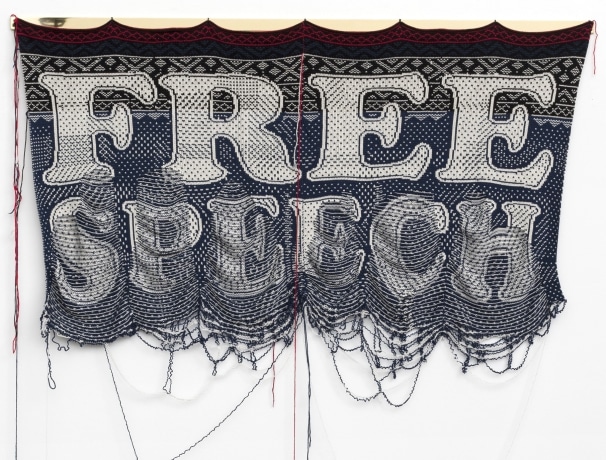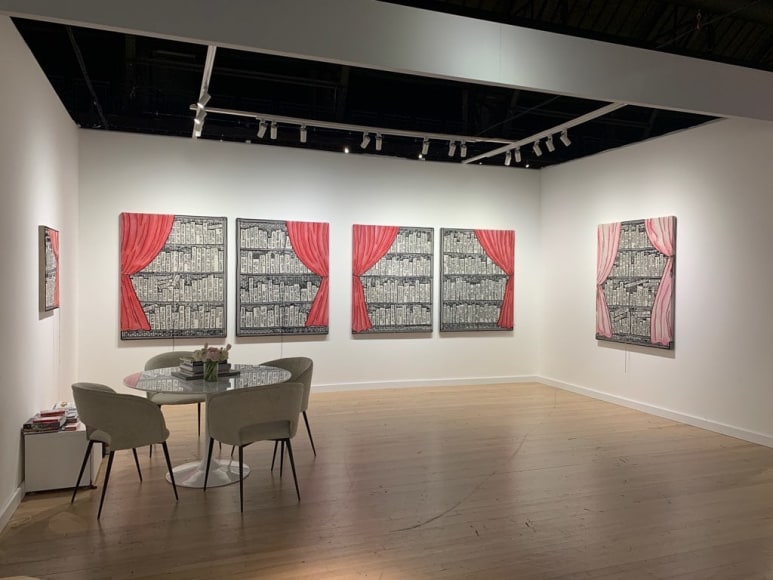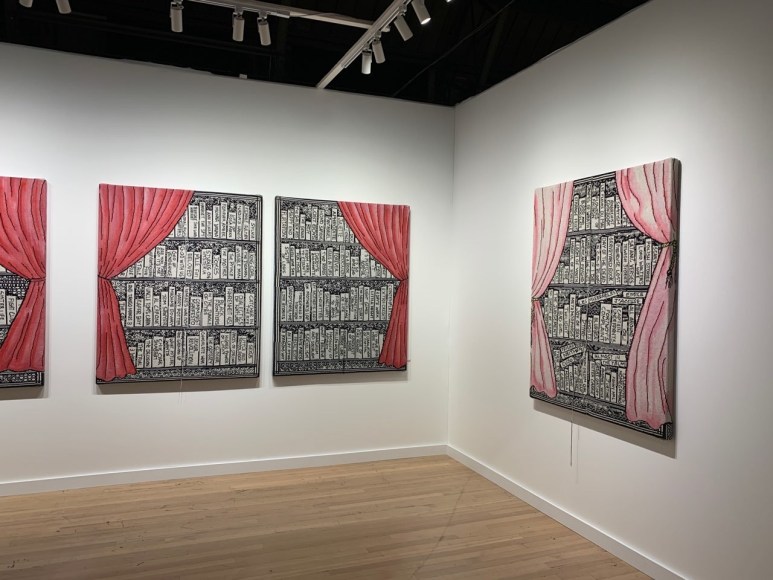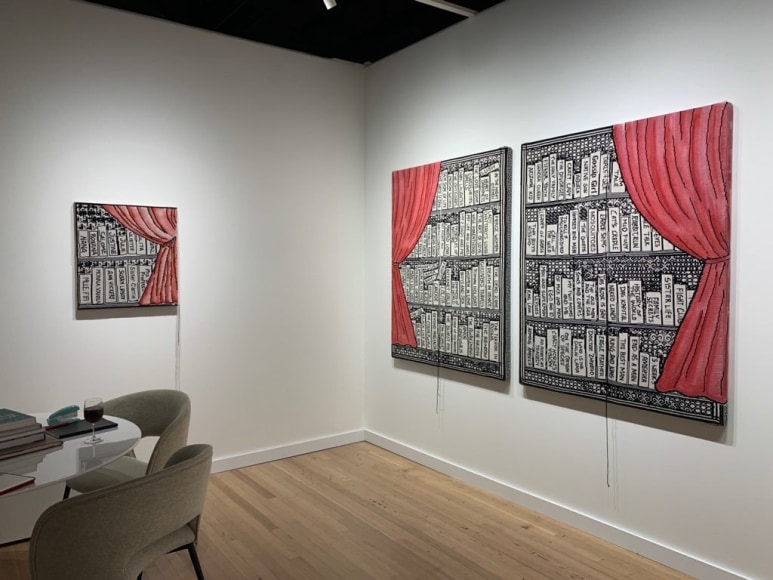
For the 2023 ADAA Art Show, GAVLAK is thrilled to debut works by Lisa Anne Auerbach that raise the question of what happens when ideologies collide over the control of knowledge, specifically as regards censorship versus open access. Auerbach’s knitted textile series, Illicit Libraries (2023), situates the complexity of this quarrel in relation to book bans and their controversies.
A long-time member of Gavlak’s roster, Auerbach has made a career of interrogating the mainstream conventions that influence modern American values. Her practice demonstrates the political necessity of creative protest, at the scale of the individual, against the powers of inequality, greed, and environmental negligence. What is unequivocal for Auerbach is the potential for the one to mobilize the many on the way to enacting progressive social change.
The artist’s conviction that knowledge is power, as the saying goes, broadly informs the thematics and designs of her projects. Many are created using DIY methods scorned by commercial standards of information and image production, including a robust, growing bibliography of self-published (and often freely distributed) books and an ongoing engagement with textiles, a medium marginalized as “women’s craft” by that enterprise known as art history. These core ideas and motivations—personal agency, knowledge, and power—come to the fore in Auerbach’s preoccupation with documenting bookshelves, her own and those of others.
Illicit Libraries advances a premise that is deceptively simple. Expanding upon the concept and visual language of earlier work—which explored the private library in terms of taste and intellectual appetite, thus configuring a portrait of a reader—the new series places on its shelves titles that are, or have been, targeted by book bans. A relentless form of censorship, book banning strives to block information from public access, and historically has done so if that information might specially serve to rewrite suppressed histories or uplift the voices of marginalized and disenfranchised communities.
Auerbach’s project includes Illicit Libraries: Justine, which depicts rows of novels that explore the complexities of human sexuality, many incredibly famous and lauded for their artistic merit, and all at one time or another subjected to accusations of indecency. In another, Illicit Libraries: It’s So Amazing, Freudian psychoanalysis commingles with de Sade, Faulkner, and Michael Willhoite’s Daddy’s Roommate (a children’s picture book and the second most challenged book during the 1990s, according to American Library Association). And in another, Illicit Libraries: Amerika, so-called Fathers of Discourse jostled for space next to Gossip Girl. It is as though Auerbach has taken a core sample of literary controversy over the past century or more and marked the inconsistency, if not the absurdity, of so much protest.
The curtain that repeats throughout the series is semantically loaded as the books. The motif performs a double operation; it hints at titillation and taboo but also suggests the duller side of hiding away: occlusion and absence, ignorance and loss. In art historical terms, the allusion to the illusion of drapery in European and early American painting is definite, adding a touch of irony to both object and image: a representation of a curtain, rendered in wool, feigns trompe-l'œil to thoroughly undermine the notion of the canon—i.e., a selection of what is “proper, right, and of the highest caliber”—in both arts and letters.
Auerbach asserts that libraries, the battle grounds for book banning, are among the last bastions of intellectual enrichment where one can explore and learn virtually unmonitored. In an era when “doing your own research” is code for spending countless hours online, stringing together conspiracy theories to comfortably suit an unexamined, biased worldview, the notion of consulting the stacks in search of verified data, accessed in a context predicated on the virtues of contestation, debate, evidence, and pressure-tested veracity, is increasingly urgent and endangered. The hope behind Auerbach’s Illicit Libraries is that it will not become the only lasting record of what it shows.






